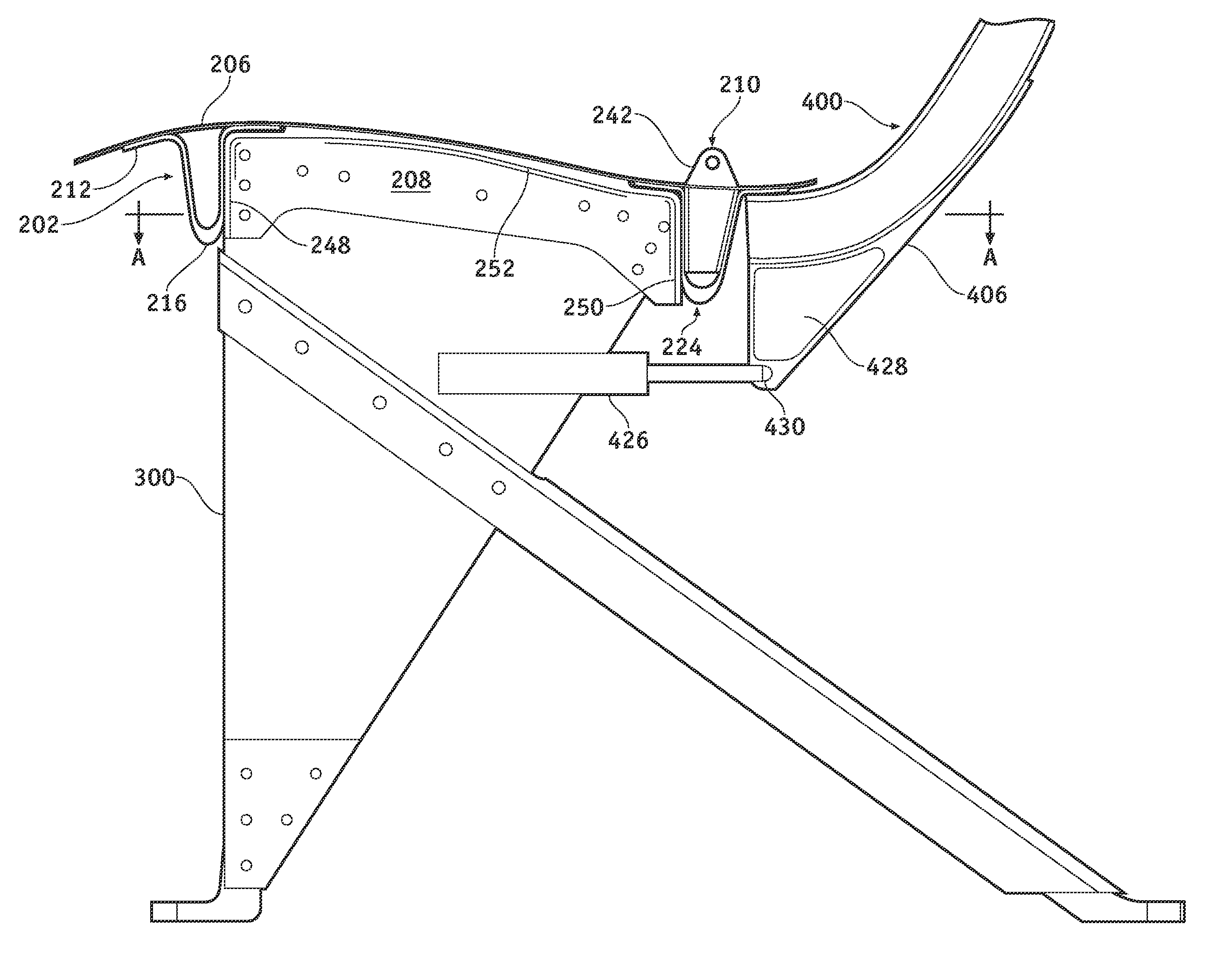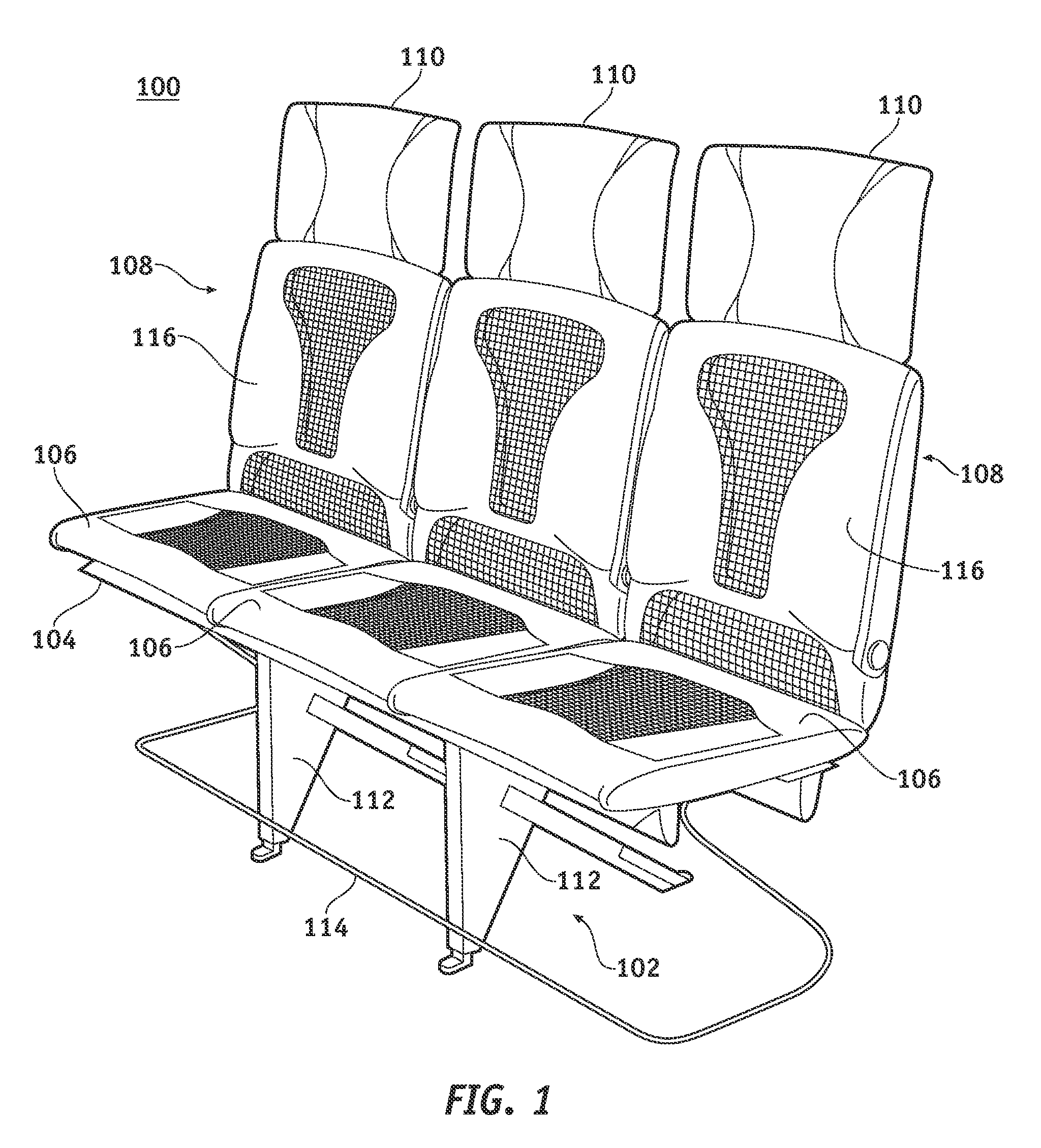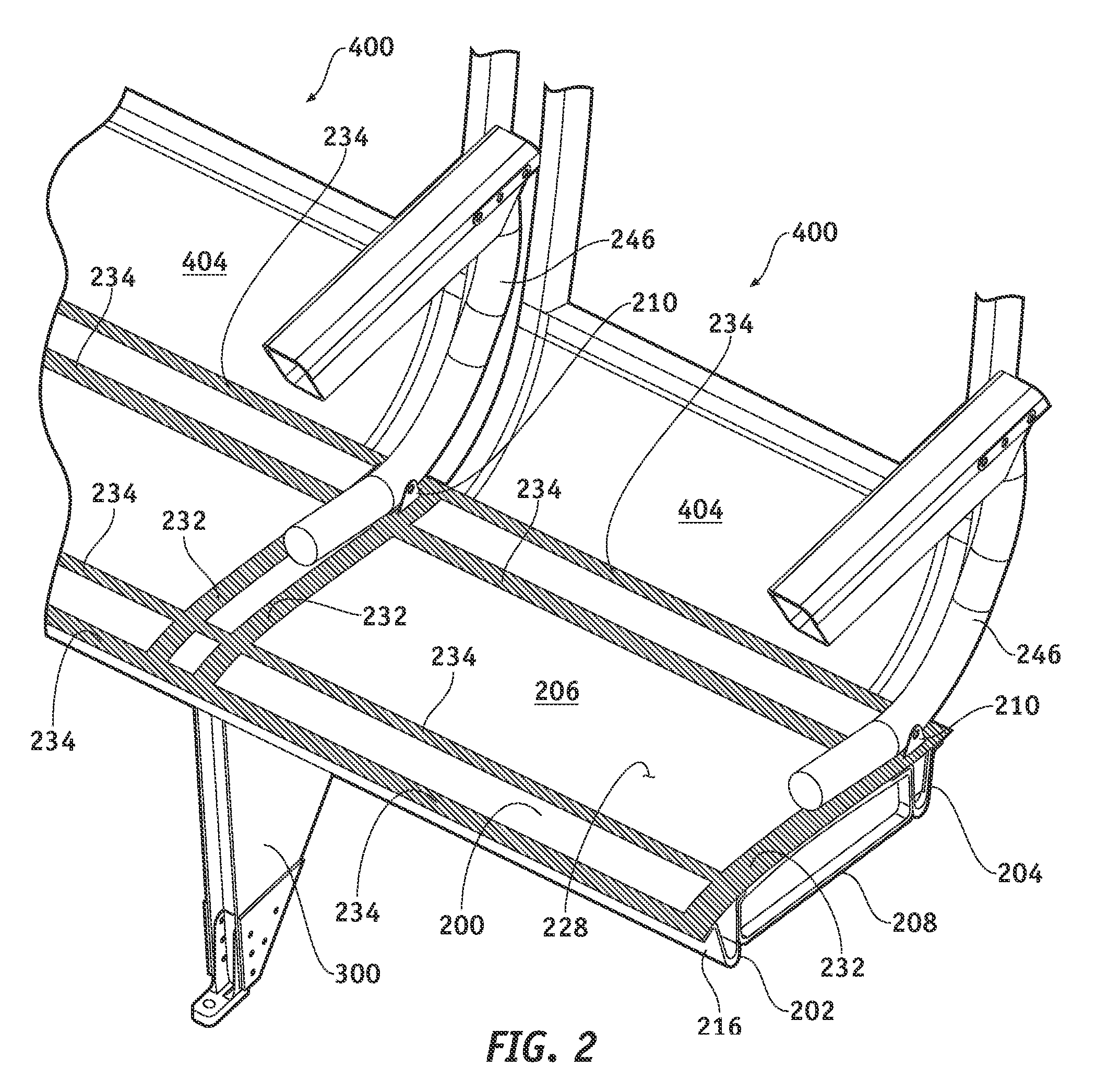Composite seat back structure for a lightweight aircraft seat assembly
a lightweight aircraft and seat back technology, applied in the direction of chairs, seating arrangements, pedestrian/occupant safety arrangements, etc., can solve the problems of consuming precious cabin space, bulky materials and thick padding used in conventional aircraft passenger seats, and bulky materials are usually needed for structural support, so as to achieve weight savings and size reduction
- Summary
- Abstract
- Description
- Claims
- Application Information
AI Technical Summary
Benefits of technology
Problems solved by technology
Method used
Image
Examples
Embodiment Construction
[0042]The following detailed description is merely illustrative in nature and is not intended to limit the embodiments of the invention or the application and uses of such embodiments. Furthermore, there is no intention to be bound by any expressed or implied theory presented in the preceding technical field, background, brief summary or the following detailed description.
[0043]For the sake of brevity, conventional aspects and techniques related to the manufacture of composite materials (including the handling and processing of particular chemicals, compounds, resins, fibers, and substrates) may not be described in detail herein.
[0044]The following description may refer to elements or nodes or features being “connected” or “coupled” together. As used herein, unless expressly stated otherwise, “connected” means that one element / node / feature is directly joined to (or directly communicates with) another element / node / feature, and not necessarily mechanically. Likewise, unless expressly ...
PUM
 Login to View More
Login to View More Abstract
Description
Claims
Application Information
 Login to View More
Login to View More - R&D
- Intellectual Property
- Life Sciences
- Materials
- Tech Scout
- Unparalleled Data Quality
- Higher Quality Content
- 60% Fewer Hallucinations
Browse by: Latest US Patents, China's latest patents, Technical Efficacy Thesaurus, Application Domain, Technology Topic, Popular Technical Reports.
© 2025 PatSnap. All rights reserved.Legal|Privacy policy|Modern Slavery Act Transparency Statement|Sitemap|About US| Contact US: help@patsnap.com



